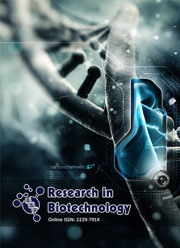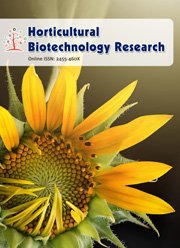Diet and nutrition strategies for cancer prevention: A comprehensive review
DOI:
https://doi.org/10.25081/rib.2023.v14.8618Keywords:
Cancer, Diet, Nutrition, Physical Activity, Cancer risk, LifestyleAbstract
Maintaining a healthy diet is crucial for preventing cancer, as it provides the essential nutrients needed for proper physiological functioning. It is predicted that simple lifestyle and dietary changes can lessen the risk of developing 30-40% of all malignancies. Obesity, the consumption of nutrient-deficient foods such as sugary and refined flour products, which can lead to impaired glucose metabolism and, eventually, diabetes, a lack of dietary fiber, an excess of red meat, and an imbalance in the consumption of omega-3 and omega-6 fats are all risk factors for cancer. To reduce your risk of cancer, include flax seeds, a variety of fruits and vegetables, and dietary fiber in your diet. Additionally, there is proof that nutritional supplements may help lower the risk of breast cancer recurrence. To prevent various types of cancer, it is important to include vegetables, fruits, whole grains, and specific fatty acids in your diet, alongside engaging in regular physical exercise. Furthermore, it is crucial to use advances in genetics and molecular biology to extend nutritional research from observational studies to demonstrating causative linkages. Cancer prevention strategies that involve dietary changes targeted at specific groups should be based on a thorough understanding of these fundamental principles. Such dietary methods can be effective as well as in cancer prevention but also cancer rehabilitation. This review investigates the relationship between cancer and diet, examines straightforward approaches to incorporating cancer-preventive foods into one’s diet, investigates the impact of dietary variables and lifestyle choices on the risk of cancer, and investigates clinical studies focused on nutrition and cancer prevention.
Downloads
References
American Cancer Society. (1996). Advisory Committee on Diet, Nutrition, and Cancer Prevention. Guidelines on diet, nutrition, and cancer prevention: Reducing the risk of cancer with healthy food choices and physical activity. CA: A Cancer Journal for Clinicians, 46(6), 325-341. https://doi.org/10.3322/canjclin.46.6.325
Anand, P., Kunnumakkara, A. B., Sundaram, C., Harikumar, K. B., Tharakan, S. T., Lai, O. S., Sung, B., & Aggarwal, B. B. (2008). Cancer is a preventable disease that requires major lifestyle changes. Pharmaceutical Research, 25, 2097-2116. https://doi.org/10.1007/s11095-008-9661-9
Block, G., Patterson, B., & Subar, A. (1992). Fruit, vegetables, and cancer prevention: A review of the epidemiological evidence. Nutrition and Cancer, 18(1), 1-29. https://doi.org/10.1080/01635589209514201
Castellsagué, X., Muñoz, N., De Stefani, E., Victora, C. G., Castelletto, R., Rolón, P. A., & Quintana, M. J. (1999). Independent and joint effects of tobacco smoking and alcohol drinking on the risk of esophageal cancer in men and women. International Journal of Cancer, 82(5), 657-664. https://doi.org/10.1002/(sici)1097-0215(19990827)82:5<657::aid-ijc7>3.0.co;2-c
Chen, S., Sun, X. Z., Kao, Y. C., Kwon, A., Zhou, D., & Eng, E. (1998). Suppression of breast cancer cell growth with grape juice. Pharmaceutical Biology, 36, 53-61.
Donaldson, M. S. (2004). Nutrition and cancer: A review of the evidence for an anti-cancer diet. Nutrition Journal, 3, 19. https://doi.org/10.1186/1475-2891-3-19
Fahey, J. W., Zhang, Y., & Talalay, P. (1997). Broccoli sprouts an exceptionally rich source of inducers of enzymes that protect against chemical carcinogens. Proceedings of the National Academy of Sciences of the United States of America, 94(19), 10367-10372. https://doi.org/10.1073/pnas.94.19.10367
Giovannucci, E., Rimm, E. B., Ascherio, A., Stampfer, M. J., Colditz, G. A., & Willett, W. C. (1995). Alcohol, low-methionine-low-folate diets, and risk of colon cancer in men. Journal of the National Cancer Institute, 87(4), 265-273. https://doi.org/10.1093/jnci/87.4.265
Glade, M. J. (1999). Food, nutrition, and the prevention of cancer: A global perspective. American Institute for Cancer Research/World Cancer Research Fund, American Institute for Cancer Research, 1997. Nutrition, 15(6), 523-526. https://doi.org/10.1016/s0899-9007(99)00021-0
Greenwald, P., & McDonald, S. S. (1997). Cancer Prevention: The Roles of Diet and Chemoprevention. Cancer Control, 4(2), 118-127. https://doi.org/10.1177/107327489700400202
Greenwald, P., Clifford, C. K., & Milner, J. A. (2001). Diet and cancer prevention. European Journal of Cancer, 37(8), 948-965. https://doi.org/10.1016/s0959-8049(01)00070-3
Greenwald, P., Kelloff, G., Burch-Whitman, C., & Kramer, B. S. (1995). Chemoprevention. CA: A Cancer Journal for Clinicians, 45(1), 31-49. https://doi.org/10.3322/canjclin.45.1.31
Hakama, M. (1997). Chemoprevention research in Europe. International Journal of Cancer, 71(S10), 30-33. https://doi.org/10.1002/(sici)1097-0215(1997)10+<30::aid-ijc8>3.0.co;2-a
Holmes, M. D., Liu, S., Hankinson, S. E., Colditz, G. A., Hunter, D. J., & Willett, W. C. (2004). Dietary carbohydrates, fiber, and breast cancer risk. American Journal of Epidemiology, 159(8), 732-739. https://doi.org/10.1093/aje/kwh112
IARC. (1998). Working Group on the Evaluation of Cancer-Preventive Agents, World Health Organization, & International Agency for Research on Cancer. Carotenoids. IARC.
Kato, I., & Nomura, A. M. Y. (1994). Alcohol in the aetiology of upper aerodigestive tract cancer. European Journal of Cancer Part B: Oral Oncology, 30(2), 75-81. https://doi.org/10.1016/0964-1955(94)90056-6
Kelloff, G. J., Boone, C. W., Crowell, J. A., Steele, V. E., Lubet, R., & Sigman, C. C. (1994a). Chemopreventive drug development: Perspectives and progress. Cancer Epidemiology, Biomarkers and Prevention, 3(1), 85-98.
Kelloff, G. J., Boone, C. W., Steele, V. E., Crowell, J. A., Lubet, R., & Sigman, C. C. (1994b). Progress in cancer chemoprevention: Perspectives on agent selection and short-term clinical intervention trials. Cancer Research, 54(S7), 2015s-2024s.
Kelloff, G. J., Johnson, J. R., Crowell, J. A., Boone, C. W., DeGeorge, J. J., Steele, V. E., Mehta, M. U., Temeck, J. W., Schmidt, W. J., & Burke, G. (1995). Approaches to the development and marketing approval of drugs that prevent cancer. Cancer Epidemiology, Biomarkers and Prevention, 4(1), 1-10.
Liskova, A., Samec, M., Koklesova, L., Brockmueller, A., Zhai, K., Abdellatif, B., Siddiqui, M., Biringer, K., Kudela, E., Pec, M., Gadanec, L. K., Šudomová, M., Hassan, S. T. S., Zulli, A., Shakibaei, M., Giordano, F. A., Büsselberg, D., Golubnitschaja, O., & Kubatka, P. (2021). Flavonoids as an effective sensitizer for anti-cancer therapy: Insights into multi-faceted mechanisms and applicability towards individualized patient profiles. EPMA Journal, 12, 155-176. https://doi.org/10.1007/s13167-021-00242-5
Longnecker, M. P. (1994). Alcoholic beverage consumption in relation to risk of breast cancer: Meta-analysis and review. Cancer Causes & Control, 5, 73-82. https://doi.org/10.1007/BF01830729
Maghimaa, M., & Alharbi, S. A. (2020). Green synthesis of silver nanoparticles from Curcuma longa L. and coating on the cotton fabrics for antimicrobial applications and wound healing activity. Journal of Photochemistry and Photobiology B: Biology, 204, 111806. https://doi.org/10.1016/j.jphotobiol.2020.111806
Mills, P. K., Beeson, W. L., Phillips, R. L., & Fraser, G. E. (1989). Cohort study of diet, lifestyle, and prostate cancer in Adventist men. Cancer, 64(3), 598-604. https://doi.org/10.1002/1097-0142(19890801)64:3<598::aid-cncr2820640306>3.0.co;2-6
Mokhtari, R. B., Homayouni, T. S., Baluch, N., Morgatskaya, E., Kumar, S., Das, B., & Yeger, H. (2017). Combination therapy in combating cancer. Oncotarget, 8, 38022-38043. https://doi.org/10.18632/oncotarget.16723
Murali, U., Pandeeswari, N., Elango, B., Murugesan, K., Abirami, K., Divya, V. V., Sathya, T. A., Basalingappa, K. M., & Mathanmohun, M. (2023). Phytochemical screening and antimicrobial activity of plant leaf extract against enteric bacterial pathogens. Journal of Medicinal Herbs and Ethnomedicine, 9, 29-33. https://doi.org/10.25081/jmhe.2023.v9.8523
Narimatsu, H., & Yaguchi, Y. T. (2022). The role of diet and nutrition in cancer: Prevention, treatment, and survival. Nutrients, 14(16), 3329. https://doi.org/10.3390/nu14163329
National Research Council. (1989). Diet and Health: Implications for Reducing Chronic Disease Risk. Washington, DC: The National Academies Press. https://doi.org/10.17226/1222
Pal, D., Banerjee, S., & Ghosh, A. K. (2012). Dietary-induced cancer prevention: An expanding research arena of emerging diet related to the healthcare system. Journal of Advanced Pharmaceutical Technology and Research, 3(1), 16-24.
Platz, E. A., Willett, W. C., Colditz, G. A., Rimm, E. B., Spiegelman, D., & Giovannucci, E. (2000). Proportion of colon cancer risk that might be preventable in a cohort of middle-aged US men. Cancer Causes & Control, 11, 579-588. https://doi.org/10.1023/a:1008999232442
Potter, J. (1997). World Cancer Research Fund, food, nutrition and the prevention of cancer: A global perspective. American Institute for Cancer Research.
Qian, G. S., Ross, R. K., Yu, M. C., Yuan, J. M., Gao, Y. T., Henderson, B. E., Wogan, G. N., & Groopman, J. D. (1994). A follow-up study of urinary markers of aflatoxin exposure and liver cancer risk in Shanghai, People’s Republic of China. Cancer Epidemiology, Biomarkers and Prevention, 3(1), 3-10.
Santarelli, R. L., Pierre, F., & Corpet, D. E. (2008). Processed meat and colorectal cancer: A review of epidemiologic and experimental evidence. Nutrition and Cancer, 60(2), 131-144. https://doi.org/10.1080/01635580701684872
Shanmugasundaram, K. R., Ramanujam, S., Shanmugasundaram, E. R., & Amrita, B. (1994). A salt-spice-herbal health food supplement for the prevention of nitrosamine-induced depletion of antioxidants. Journal of Ethnopharmacology, 42(2), 83-93.
Sinha, R., & Caporaso, N. (1999). Diet, genetic susceptibility and human cancer etiology. Journal of Nutrition, 129(2), 556S-559S. https://doi.org/10.1093/jn/129.2.556S
Slattery, M. L., O’Brien, E., & Mori, M. (1995). Disease heterogeneity: Does it impact our ability to detect dietary associations with breast cancer? Nutrition and Cancer, 24(3), 213-220. https://doi.org/10.1080/01635589509514410
Stoll, B. A. (1999). Alcohol intake and late-stage promotion of breast cancer. European Journal of Cancer, 35(12), 1653-1658. https://doi.org/10.1016/s0959-8049(99)00160-4
Strickland, P. T., & Groopman, J. D. (1995). Biomarkers for assessing environmental exposure to carcinogens in the diet. American Journal of Clinical Nutrition, 61(3), 710S-720S. https://doi.org/10.1093/ajcn/61.3.710S
Sun, X., Veeraraghavan, V. P., Surapaneni, K. M., Hussain, S., Mathanmohun, M., Alharbi, S. A., Aladresi, A. A. M., & Chinnathambi, A. (2021). Eugenol–piperine loaded polyhydroxy butyrate/polyethylene glycol nanocomposite‐induced apoptosis and cell death in nasopharyngeal cancer (C666-1) cells through the inhibition of the PI3K/AKT/mTOR signaling pathway. Journal of Biochemical and Molecular Toxicology, 35(4), e22700. https://doi.org/10.1002/jbt.22700
Takezaki, T., Shinoda, M., Hatooka, S., Hasegawa, Y., Nakamura, S., Hirose, K., Inoue, M., Hamajima, N., Kuroishi, T., Matsuura, H., & Tajima, K. (2000). Subsite-specific risk factors for hypopharyngeal and esophageal cancer (Japan). Cancer Causes & Control, 11, 597-608. https://doi.org/10.1023/a:1008909129756
Vakayil, R., Kabeerdass, N., Kuppusamy, A., & Mathanmohun, M. (2019). Phytochemical screening and antibacterial properties of Punica granatum extracts against gastrointestinal infection an in-vitro study. Uttar Pradesh Journal of Zoology, 40(1), 25-32.
van Poppel, G., & Goldbohm, R. A. (1995). Epidemiologic evidence for beta-carotene and cancer prevention. American Journal of Clinical Nutrition, 62(6), 1393S-1402S. https://doi.org/10.1093/ajcn/62.6.1393S
WCRF/AICR. (2018a). Food, nutrition, physical activity, and the prevention of cancer: A global perspective. World Cancer Research Fund/American Institute for Cancer Research.
WCRF/AICR. (2018b). Continuous update project expert report 2018. Recommendations and public health and policy implications. World Cancer Research Fund/American Institute for Cancer Research.
WCRF/AICR. (2018c). Diet, nutrition, physical activity and breast cancer survivors. World Cancer Research Fund/American Institute for Cancer Research.
WCRF/AICR. (1997). Food, nutrition and the prevention of cancer: A global perspective. World Cancer Research Fund/American Institute for Cancer Research.
Wolin, K. Y., Yan, Y., Colditz, G. A., & Lee, I. M. (2009). Physical activity and colon cancer prevention: A meta-analysis. British Journal of Cancer, 100(4), 611-616. https://doi.org/10.1038/sj.bjc.6604917
World Health Organization. (2021). Cancer. Retrieved from https://www.who.int/news-room/fact-sheets/detail/cancer
Zhou, J.-R., & Blackburn, G. L. (1999). Dietary lipid modulation of immune response in tumor genesis. In D. Heber, G. L. Blackburn & V. L. W. Go (Eds.), Nutritional Oncology (pp. 195-213) San Diego, US: Academic Press.
Published
How to Cite
Issue
Section
Copyright (c) 2023 Divya Bharathi Hinduja, A. S. Dhanu, G. G. Swamy, Karthikeyan Murugesan, Boojhana Elango, Uthamalingam Murali, Mamunur Rashid, Maghimaa Mathanmohun, Kanthesh M. Basalingappa

This work is licensed under a Creative Commons Attribution-NonCommercial-NoDerivatives 4.0 International License.



 .
.